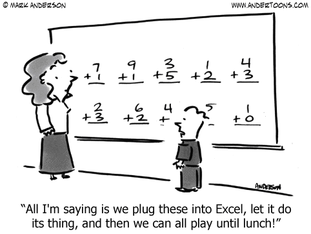I know that math testing has to be done, but I have had several discussions lately about when and why you give some kind of math assessment. My post today will cover what types of math assessment should be given and what usable data you can get from it.
First, I want to address formative math assessments. These are assessments that guide your instructions. They answer the question, “What do my students know and where do I need to go next?” Formative assessment should be done on a regular basis to keep your instruction on track. Some teachers do daily assessments such as check in or check out cards. If you are not an every day person, you should at least do a formative assessment every week.

Keep in mind that these should be short and quick assessments. They should not take up much of your instructional time. Even a weekly assessment should be no more than 3-5 questions and take no more than 10-15 minutes. Formative assessments should be scored and analyzed immediately in order to direct your instruction. I personally do not think that formative assessments should be used as grades, but I do know teachers who do. I do not advocate using them for a grade, because you want students to show you what they know and not worry about being wrong. This will give you more accurate data for what your students know and don’t know and where their understanding is falling apart.
The other form of assessment we need to discuss is summative assessments. Summative assessments tell you what your students have learned over a period of time. Unit tests, quarterly tests, end ofcourse tests, and state tests are all summative. Summative assessments provide you with a different type of data. This data can show weaknesses in your teaching or in your school’s math program as a whole. Unit tests can show you areas that need to be retaught during an intervention time, while end of course or state testing provides data for following year.

As a rule, I do not encourage teachers to give a summative assessment until they are sure that their students are ready for it. This kind of test should be used to prove to students how much they have learned, not as a tool to make them feel bad for what they haven’t learned. Unit tests should be given when your students have mastered most if not all of the material in the unit. Giving it early doesn’t do anyone any good.
I realize that some summative assessments are scheduled by the district or state and we have no control over those. If your district uses quarterly testing to determine readiness for state testing, make sure your students know that they just need to do their best. If the test covers concepts that your have not mastered or even covered in class, discuss that with your students before the test and tell them that you will be focusing on the questions that have been covered. After you have submitted data to your district, reanalyze the test based solely on what has been covered in class. This is the data that you should discuss with your students. Show them that you don’t hold them responsible for concepts that they haven’t been taught yet.

End of year state testing is something that none of us has any control over. If you have taught your students well and used tests as a means of encouragement all year, trust that your students will be able to handle state testing without stress and worry.


